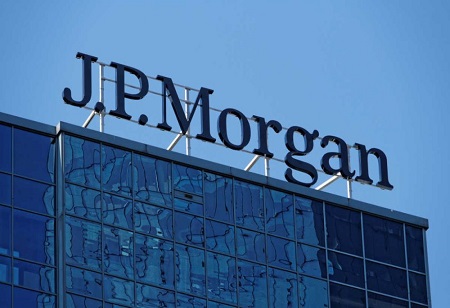By Consultants Review Team
 Banks in India are about to take the first step to examine the settlement process of dollars in the country. JP Morgan, a significant Wall Street bank, and an amount of other financial firms will conduct a pilot project over the coming months at the International Financial Services Centre (IFSC) in GIFT City, Gandhinagar, Gujarat, where dollar payments and receipts can be made between international banking units (IBUs), also known as bank branches.
Banks in India are about to take the first step to examine the settlement process of dollars in the country. JP Morgan, a significant Wall Street bank, and an amount of other financial firms will conduct a pilot project over the coming months at the International Financial Services Centre (IFSC) in GIFT City, Gandhinagar, Gujarat, where dollar payments and receipts can be made between international banking units (IBUs), also known as bank branches.
IFSC Authority, the unified body for regulation and development of financial services and products in GIFT City, has given JP Morgan the go-ahead for the clearing and settlement system under a sandbox regime.
Banks in India would not require to execute dollar transfers using their accounts in the US, with this system. "A local dollar clearing means instantaneous settlement and availability of round-the-clock clearing infra JP Morgan is roping in other banks. We expect the experiment to begin next month," a senior banker.
All conventional foreign currency fund transfers are typically routed by debiting and crediting into nostro accounts of Indian banks. A nostro account is a foreign currency account that a bank in India has with an overseas bank. Thus, when the client of an Indian bank pays or receives dollars, the local bank's account with the foreign bank in New York is either debited or credited.
Under the local Indian rupee-dollar clearing and settlement framework proposed in GIFT City, IBUs of banks in IFSC will have to open a nostro account with JP Morgan in the financial center itself.
A similar mechanism exists in some of the other financial centers. Hong Kong, for instance, has a multi-clearing facility, with dollar, renminbi and euro fund flows cleared through commercial banks. HSBC clears dollar transfers, while euro transfers are handled by Standard Chartered.
JP Morgan Clearing Bank
All financial institutions domiciled in Hong Kong open nostro accounts with commercial banks there under The Hong Kong Monetary Authority regulations. Under the proposed system for the new Indian financial center, JP Morgan would act as the clearing bank to settle inflow and outflow of foreign exchange in other bank branches in GIFT City which, according to foreign exchange regulations, is a quasi-foreign territory, with banks having foreign currency accounts.
"We understand the processing of payments would be with the help of blockchain technology. So, as per the proposal, IBUs in GIFT City would be opening with JP Morgan on-chain nostro accounts sitting on a distributed ledger blockchain system... In executing the payments, banks can use SWIFT, or other modes like the domestic SFMS, to validate the transactions," said another person familiar with the project.
The Society for Worldwide Interbank Financial Telecommunication (or SWIFT) is a widely-used international messaging system offered by a Belgium-based service provider to facilitate and confirm cross-border payments. SFMS or the Structured Financial Messaging System is the locally-developed system used for intra- and inter-bank messages, as well as transmission of attached files in a secure mode. JP Morgan has had discussions with the Reserve Bank of India (RBI) on the subject.
"Besides immediate clearing, a local dollar clearing means that such a clearing and settlement would be available 24/7, and can be used on days the US is shut," said another banker. "Such an infrastructure, based on the tokenization of cash and securities, can be scaled up at a later point for cross-currency, securities and bullion future transactions."
In blockchain technology, tokenization means converting something of value into a digital token that is usable on a blockchain application. According to a website on JP Morgan's Onyx Coin system, the 'JPM Coin' is a "permission system that serves as a payment rail and deposit account ledger, that allows participating JP Morgan clients to transfer US dollars held on deposit with JP Morgan within the system."
We use cookies to ensure you get the best experience on our website. Read more...